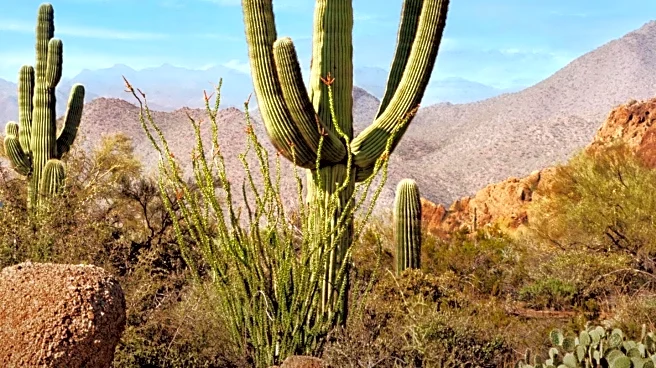What's Happening?
In Mexico City, the sale of acitrón, a candied product made from the endangered biznaga cactus, continues despite its illegal status. The Mexican government banned acitrón in the early 2000s due to the overexploitation of the biznaga cactus, a species of barrel cactus. The cactus is crucial to traditional Mexican dishes like chiles en nogada, which are popular during Independence Day celebrations. Despite the ban, demand for acitrón remains high, with vendors continuing to sell it to meet consumer needs.
Why It's Important?
The continued sale of acitrón highlights the tension between cultural traditions and environmental conservation. The biznaga cactus is facing extinction due to unsustainable harvesting practices, threatening biodiversity and ecological balance. This situation raises ethical questions about the preservation of cultural heritage versus the need to protect endangered species. The issue also reflects broader challenges in enforcing environmental regulations and promoting sustainable practices.
Beyond the Headlines
The plight of the biznaga cactus serves as a reminder of the delicate balance between human activities and environmental sustainability. It underscores the importance of developing alternative solutions that allow cultural traditions to thrive without compromising ecological integrity. The story may inspire efforts to cultivate the cactus sustainably or find substitutes that preserve the cultural significance of traditional dishes.











